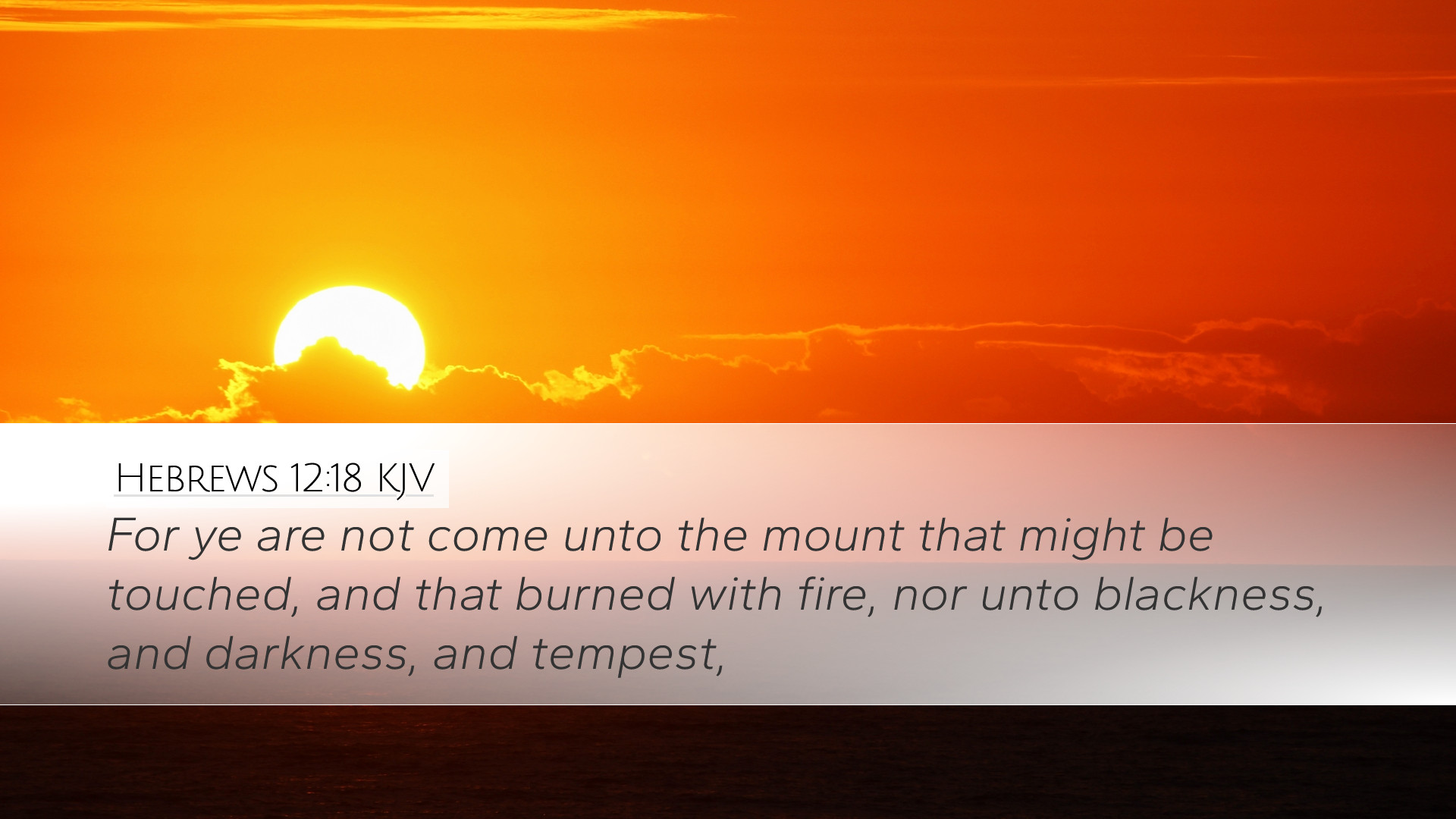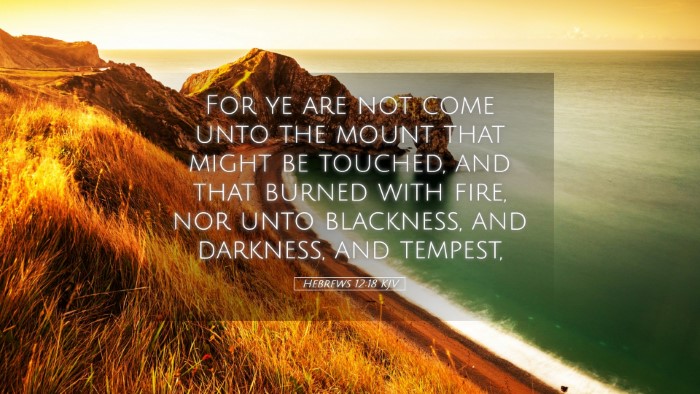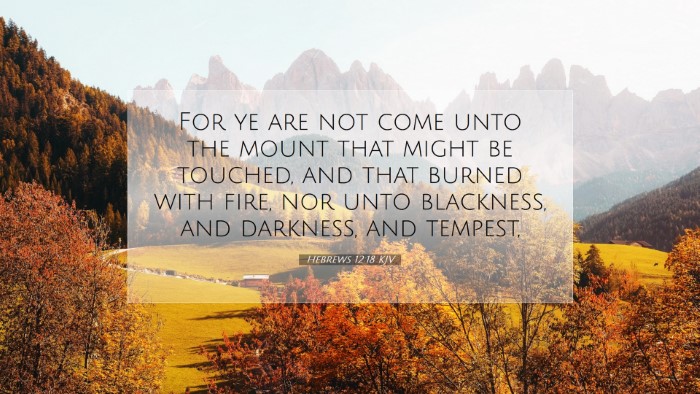Commentary on Hebrews 12:18
This verse serves as a pivotal point in the Epistle to the Hebrews, contrasting the old covenant experienced at Mount Sinai with the new covenant established through Christ. The author emphasizes the transition from the physical, tangible encounter with God to the spiritual and heavenly realities accessible through faith.
Understanding the Context
Hebrews 12:18 states:
"For you have not come to the mountain that may be touched and that burned with fire, and to blackness and darkness and tempest."
This verse is part of a larger discourse encouraging believers to persevere in faith, highlighting the transformation of their relationship with God. The reference to Mount Sinai evokes a powerful imagery of the giving of the Law, marked by fear and awe.
The Contrast Between Sinai and Zion
The author of Hebrews draws a clear distinction between Sinai, which represents the old covenant, and the heavenly Mount Zion, representing the new covenant:
- Mount Sinai: A physical location associated with fear, discipline, and the law. It was God's way of revealing His holiness to His people, emphasizing their unworthiness and need for rigid adherence to commandments.
- Mount Zion: A spiritual reality characterized by grace, acceptance, and a personal relationship with God through Jesus Christ. It reflects the promise of redemption and the workings of the new covenant.
Insights from Matthew Henry
Matthew Henry notes that this verse powerfully illustrates the difference between engaging with God through the law versus through grace. He emphasizes:
- The fear and trembling associated with the Law at Sinai. The sights and sounds at Sinai were fearsome and emphasized God’s holiness.
- The transformational aspect of approaching God through Christ, who is the mediator of a better covenant.
Henry encourages readers to recognize the privilege of their current standing before God and to grow in faith rather than remain in fear.
Reflections from Albert Barnes
Albert Barnes elaborates on the significance of "you have not come to the mountain that may be touched." He explains:
- The tangible mountain signifies a physical and limited experience of God’s presence, contrasting with the spiritual and boundless experience provided through Christ.
- Hebrews 12:18 sets a theological groundwork for understanding the believer’s identity. While Sinai was marked by a covenant of works, Zion represents a covenant of grace.
Barnes invites believers to appreciate their relationship with God, which does not depend on physical locations or rituals but on faith and fellowship with Christ.
Insights from Adam Clarke
Adam Clarke also provides a valuable perspective on this verse. He highlights the following themes:
- The depiction of Sinai is filled with thunder, darkness, and tempest, symbolizing God's demanding nature under the law.
- The emphasis of this verse is to assure the believing community of their position in Christ, encouraging them to embrace the peace and joy of the new covenant rather than the terror of the old.
Clarke’s commentary encourages a deeper appreciation for the spiritual dimension of the relationship with God that believers enjoy through Christ, contrasting it starkly with the past.
Theological Implications
This verse calls for deep theological reflection on the nature of God’s covenant with humanity:
- Covenant in Context: Understanding how the old covenant was meant to lead to the new reveals God's overarching plan for redemption.
- Christ as Mediator: Jesus Christ fulfills and transcends the law, providing a pathway to God that is characterized by love and grace.
- Faith over Fear: The transition from fear of God’s judgment to freedom found in faith highlights the transformative power of the Gospel.
Application for Believers
As modern readers of Hebrews 12:18, believers are encouraged to reflect on their own approach to God:
- Embrace the joy of approaching God confidently through faith in Jesus Christ, rather than being hindered by fears of inadequacy.
- Recognize the privilege of participation in the new covenant, which invites an intimate relationship with God.
- Understand the significance of community in the faith journey, fostering a supportive environment for spiritual growth and encouragement.
Conclusion
Hebrews 12:18 serves as a solemn reminder and joyous proclamation of the shift from the law to grace. Throughthe insights from public domain commentaries, believers are encouraged to abandon the fear associated with Sinai, embracing the hope and assurance found in the new covenant through Christ. This passage not only highlights the transformation of our relationship with God, but it also beckons us to a life of faith, joy, and spiritual fulfillment in our walk with the Lord.


